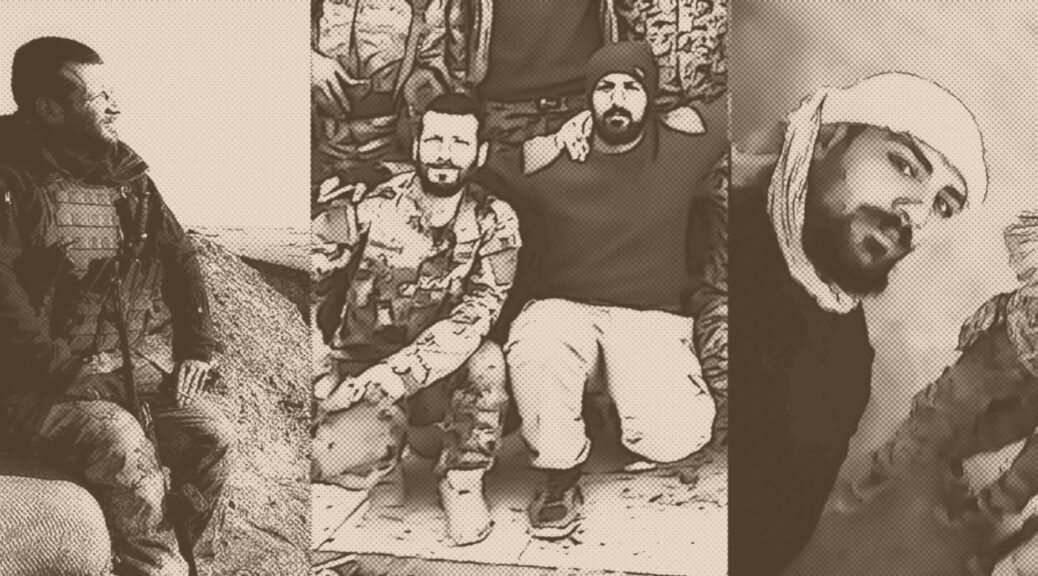Lorenzo Orsetti fell in battle side by side with an Arab fighter named Ahmed Hebeb. Those of us from Tekoşîna Anarşîst knew him as Rafiq Şamî. It was not a coincidence that they were together that day. Lorenzo and Ahmed knew each other well from Lorenzo’s previous four rotations to Deir Ezzor. During one of these occasions, Ahmed stripped down to his boxers, counting out for us from head to toe twenty-seven separate wounds that he had received while fighting ISIS over the years. Lorenzo wanted to be where the action was, and Ahmed always knew where to find it. They died together, in a hail of bullets with both guns blazing, providing covering fire to a group of their comrades who were retreating in the face of a desperate ISIS counter-attack. Ahmed was beheaded. For whatever reason, Lorenzo was not.
At Ahmed’s şehid ceremony, my friends and I helped carry his casket. His friends and family were at first confused as to why a group of foreigners had materialized at their loved one’s memorial. My Arabic is atrocious, but I pulled up pictures on my phone of Ahmed, Lorenzo, and I together in the desert of Deir Ezzor. “Şamî!” I said. “Tekoşer! Heval! Rafiq! Şehid!”
The revolution in Rojava and the war against ISIS in that part of the world have often been portrayed in the West in Orientalist and Islamophobic terms—especially by reactionaries, but also by some leftists and anarchists. Kurdish people have been fetishized and romanticized—they are portrayed as a bloc, as “the only sane people over there,” while Arabic people are dehumanized and portrayed as crazed terrorist sympathizers.3 This is especially galling to me because—while I cannot speak for other times and places during the war—the reality of what I saw in Deir Ezzor in the winter of 2018 to 2019 was that the overwhelming majority of the soldiers doing the worst of the suffering and dying to wipe ISIS off of the map were Sunni Arabs like Ahmed. Bigots and fools can say what they will about Arabs and people from Islamic societies in general, but what I saw was that when some of the most malicious jihadis in the entire world converged on northeastern Syria to pursue a program of rape and genocide, a great many Sunni Arabs including Ahmed Hebeb took up arms to stop them.

Ahmed gave his life engaged in combat with people who war had turned mad, people who had chosen to make themselves into enemies of humanity at large. Many of these people were Ahmed’s own countrymen, people who spoke the same language and worshipped the same God. Today, the conditions that sent Syria spinning into war appear to be generalizing across the entire world. The defenders of the neoliberal status quo are showing themselves to be bereft of both vision and answers. As those of us in the so-called West reckon with our own versions of ISIS in this age of ascendant ethno-nationalism, only time will tell how many people of good conscience in Christian societies will be ready to do as Rafiq Şamî did.
On behalf of Tekoşîna Anarşîst, I would like to say to Ahmed and the countless Middle Eastern men and women like him: we have not forgotten you nor the lessons that you taught us.
In the spirit of Ahmed and Lorenzo,
An anarchist.


